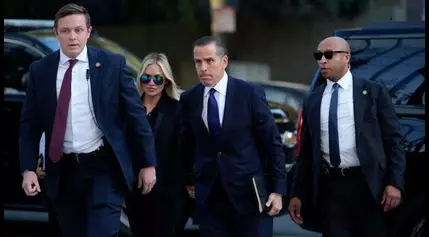Finance

Uninsured Americans Face Hurdles in Accessing Updated COVID-19 Vaccines
As the rollout of updated COVID-19 vaccines begins in the United States, a new challenge emerges for the uninsured population. For the first time, these critical shots will no longer be provided free of charge at local pharmacies, leaving some individuals struggling to afford the necessary protection against the virus.Navigating the Evolving Landscape of COVID-19 Vaccine Access
The Changing Landscape of COVID-19 Vaccine Accessibility
The rollout of updated COVID-19 vaccines in the United States has marked a significant shift in the landscape of vaccine accessibility. Unlike previous iterations, the latest shots will no longer be offered free of charge to individuals without insurance at their local pharmacies. This development means that uninsured adults will now face a financial barrier in obtaining the updated COVID-19 vaccine, with the cost estimated to exceed 0 per dose at CVS Pharmacy.While some states are still working to provide free vaccines to those who cannot afford them, the overall trend suggests a move away from the universal accessibility that characterized the initial COVID-19 vaccine rollout. This shift raises concerns about the potential impact on public health, as the availability of affordable, effective vaccines is crucial in preventing the further spread of the virus and protecting vulnerable populations.The Challenges Faced by the Uninsured
The decision to end the free provision of COVID-19 vaccines for the uninsured presents a significant challenge for this segment of the population. Many individuals who lack health insurance may already face financial constraints, and the added cost of the vaccine could create a significant barrier to accessing this vital public health resource.This development is particularly concerning given the disproportionate impact that COVID-19 has had on marginalized communities, which often have higher rates of uninsured individuals. Without access to affordable vaccines, these communities may face an increased risk of infection, exacerbating existing health disparities and further widening the equity gap in the COVID-19 pandemic response.The Role of State-Level Interventions
In response to the changing landscape of COVID-19 vaccine accessibility, some states have taken steps to ensure that the uninsured population can still access the updated shots free of charge. However, the extent and effectiveness of these state-level interventions vary widely, leaving many individuals uncertain about their options and potentially deterring them from seeking vaccination.The patchwork of state-level policies and the lack of a consistent, nationwide approach to vaccine accessibility risk creating further confusion and barriers for the uninsured. Coordinated efforts at the federal level, along with robust support for state-level initiatives, could help ensure that all Americans, regardless of their insurance status, have equitable access to the updated COVID-19 vaccines.Potential Implications for Public Health
The shift away from free COVID-19 vaccines for the uninsured has the potential to impact public health outcomes on a broader scale. If a significant portion of the population is unable to access the updated vaccines due to financial constraints, the risk of continued virus transmission and the emergence of new variants increases. This, in turn, could undermine the progress made in containing the pandemic and jeopardize the overall public health goals.Moreover, the disproportionate impact on marginalized communities could further exacerbate existing health disparities, perpetuating a cycle of vulnerability and undermining efforts to achieve equitable health outcomes. The long-term consequences of this development could extend beyond the immediate COVID-19 crisis, highlighting the need for a comprehensive and inclusive approach to public health preparedness and response.The Importance of Ensuring Equitable Access
As the COVID-19 pandemic continues to evolve, the need for equitable access to updated vaccines remains paramount. Ensuring that all individuals, regardless of their insurance status or financial means, can access these vital public health resources is essential in safeguarding the health and well-being of communities across the nation.Policymakers, healthcare providers, and community organizations must work collaboratively to address the challenges posed by the shifting landscape of COVID-19 vaccine accessibility. This may involve advocating for sustained federal funding, implementing robust state-level initiatives, and exploring innovative strategies to overcome financial barriers and deliver the updated vaccines to those who need them most.By prioritizing equitable access to COVID-19 vaccines, we can collectively strengthen our resilience, protect vulnerable populations, and chart a path towards a healthier, more inclusive future.

